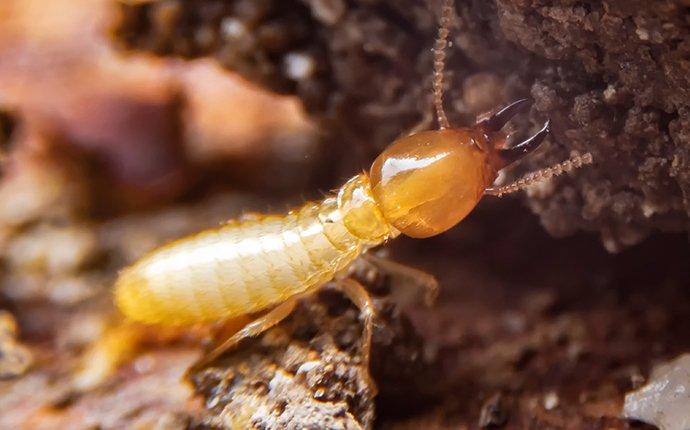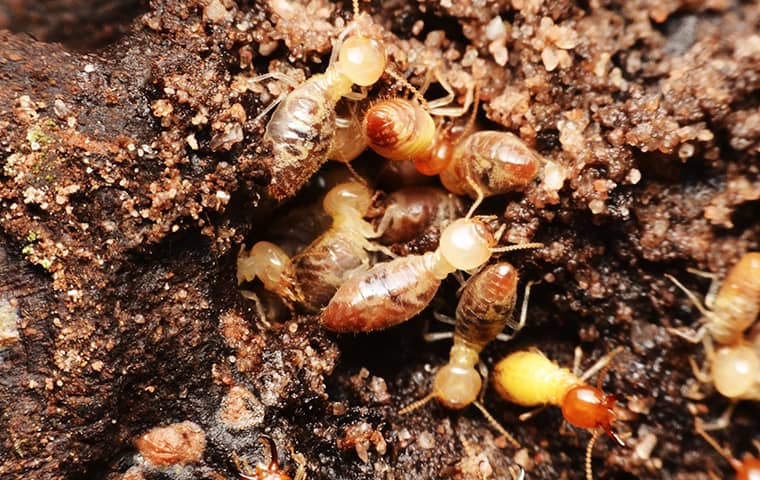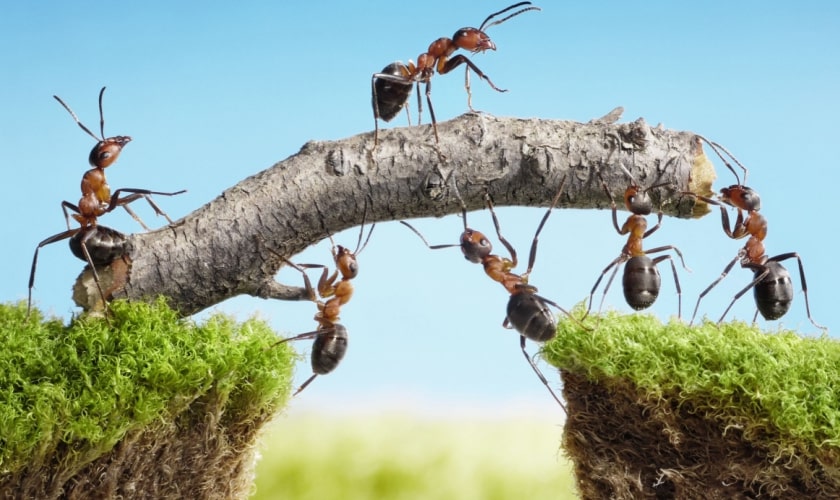Advanced Termite Control: Proven Methods for Eliminating Termite Infestations
Advanced Termite Control: Proven Methods for Eliminating Termite Infestations
Blog Article
Environmental Impact of Pest Control: Balancing Effectiveness With Sustainability
The environmental impact of bug control is a crucial issue that requires a fragile equilibrium in between attaining performance in guaranteeing and handling insects sustainability of our ecosystems. From the usage of harmful chemicals that permeate right into our dirt and water to the unintended effects on non-target varieties, the repercussions of conventional pest control techniques are significant.
Damaging Chemicals in Pest Control
The utilization of dangerous chemicals in insect control postures substantial ecological and health and wellness threats that necessitate cautious consideration and mitigation techniques. Chemicals, insecticides, and herbicides are frequently used to eliminate pests, however their extensive application can lead to unintended effects. These chemicals can contaminate soil, water resources, and the air, influencing not just the targeted insects yet also beneficial insects, wild animals, and humans.

To attend to these dangers, incorporated parasite management (IPM) methods are being promoted as a more lasting choice. IPM includes a mix of methods such as organic control, habitat manipulation, and the targeted use chemicals as a last option (ant control stephens nc). By embracing an alternative technique to pest control, we can minimize the environmental and health influences related to harmful chemicals while successfully taking care of pest populaces
Influence On Non-Target Species
Considering the unintentional consequences of pest control methods, the influence on non-target types is a vital aspect that needs comprehensive analysis. While bug control steps intend to target details parasites, various other organisms in the community may be unintentionally affected. Non-target varieties, consisting of helpful bugs, birds, creatures, and also plants, can endure straight or indirect harm from chemical applications or organic control approaches.
Insecticides made to fight a particular insect pest might hurt pollinators like or all-natural killers such as ladybugs. Biological control agents, if not species-specific, can position risks to unintended targets, disrupting the environmental equilibrium.
To alleviate the influence on non-target varieties, integrated pest administration (IPM) techniques that emphasize an all natural technique to pest control are advised. These methods focus on the usage of eco pleasant methods, decreasing harm to helpful microorganisms while properly handling pest populations. Conducting thorough risk analyses and keeping an eye on the outcomes of insect control initiatives are crucial action in guarding non-target species and advertising overall ecosystem health and wellness.
Dirt and Water Contamination
Unintentional environmental repercussions of bug control approaches extend past affecting non-target varieties, with significant ramifications for dirt and water contamination - termite control services. Pesticides, herbicides, and chemical fertilizers made use of in pest control can seep into the soil and pollute groundwater, posturing a risk to both earthbound and marine ecological communities.
Water contamination is another critical problem related to bug control methods. Runoff from farming fields treated with chemicals can carry these chemicals into nearby water bodies, influencing marine microorganisms and water quality. Contaminants in water sources can have significant effects, influencing not just water life however additionally human wellness with the usage of contaminated water or marine microorganisms. To reduce soil and water contamination from pest control activities, incorporated parasite administration approaches that prioritize sustainability and minimize chemical inputs are important.
Air Air Pollution From Pesticide Usage
Direct exposure to airborne chemicals throughout farming applications poses a substantial concern for air contamination control actions. They can volatilize into the air and kind unstable natural substances (VOCs) and various other airborne pollutants when pesticides are splashed onto plants - ant control services. These chemicals can add to the development of ground-level ozone, a significant element of smoke that can have damaging effects on human wellness, plant productivity, and total air quality. Furthermore, pesticide drift, where pesticides are carried by from this source the wind to unexpected areas, can cause the contamination of close-by environments and water bodies.

Methods for Sustainable Parasite Control
In the world of agricultural techniques, carrying out lasting pest control methods is critical for keeping ecological balance and guarding plant returns. Lasting insect control highlights making use of eco pleasant approaches to manage parasite populations efficiently while lessening injury to non-target microorganisms and communities. Integrated Bug Management (IPM) is a widely taken on technique that integrates organic, cultural, physical, and chemical control techniques to achieve long-lasting insect administration remedies.
Crop rotation and diversification are likewise efficient methods to interrupt pest life cycles and develop much less beneficial conditions for bugs to grow. Inevitably, by integrating these sustainable pest control methods, farmers can accomplish an equilibrium between pest management performance and ecological stewardship.
Final Thought
In verdict, the environmental impact of bug control methods must be thoroughly considered to balance performance with sustainability. Hazardous chemicals utilized in pest control can cause dirt and water contamination, air pollution, and harm non-target types - ant control. It is critical to carry out sustainable insect control approaches to reduce these adverse results on the setting and promote a healthier ecosystem for future generations
By adopting an all natural strategy to pest control, we can lessen the ecological and health influences associated with damaging chemicals while successfully taking care of pest populaces.

To reduce the air contamination triggered by chemical usage, it is necessary to take on incorporated pest administration techniques that prioritize the use of non-chemical parasite control techniques, such as crop turning, natural predators, and resistant plant selections. Lasting parasite control highlights the use of environmentally pleasant approaches to take care of pest populations properly while decreasing damage to non-target microorganisms and environments. Integrated Parasite Administration (IPM) is an extensively adopted technique that incorporates biological, social, physical, and chemical control methods to accomplish long-lasting pest monitoring solutions.
Report this page